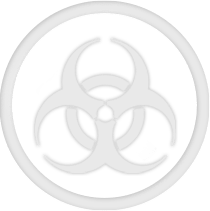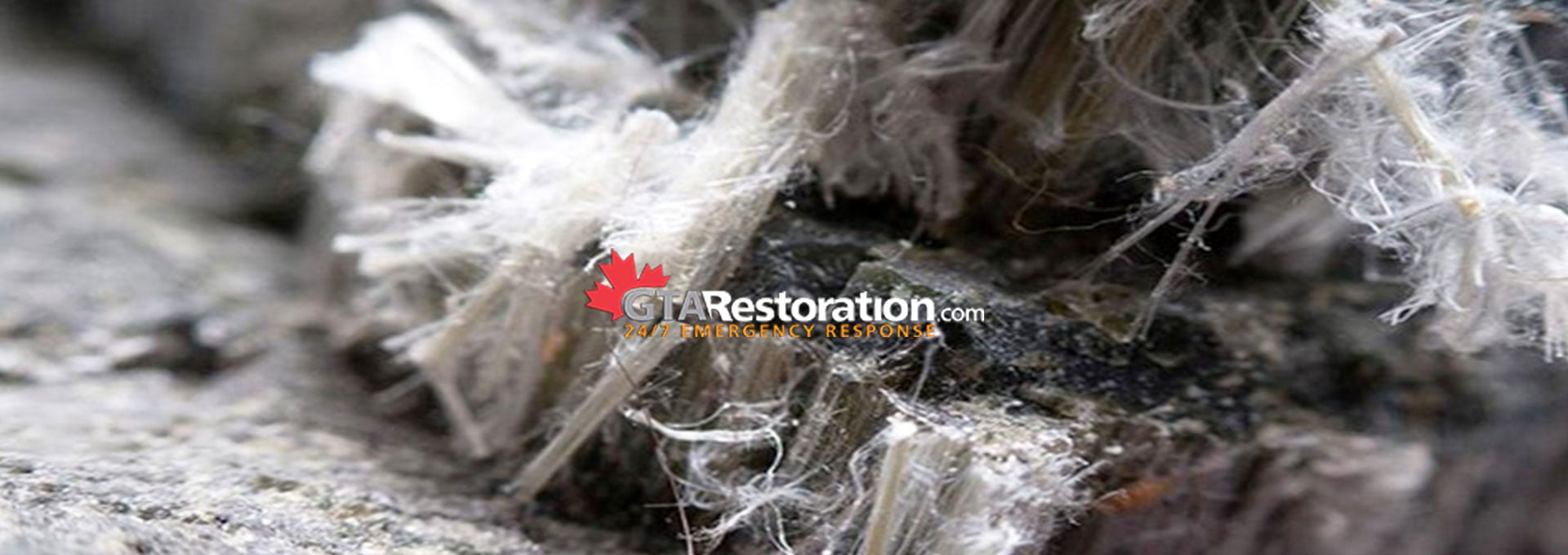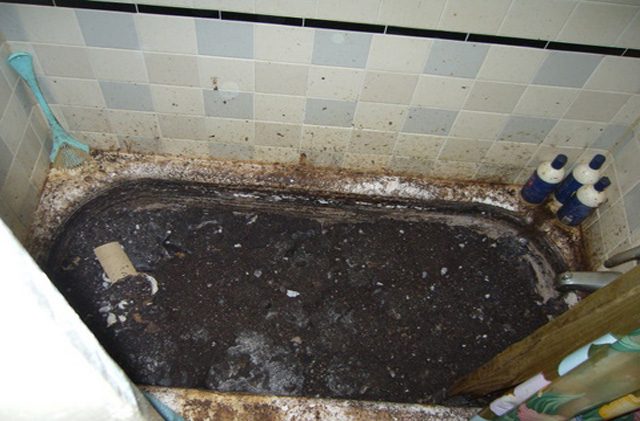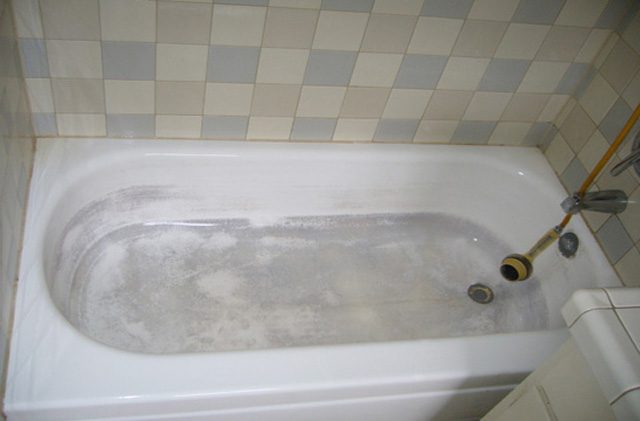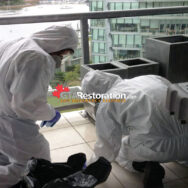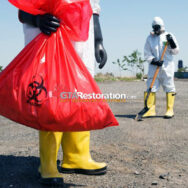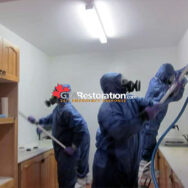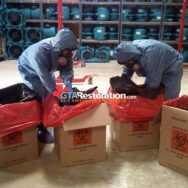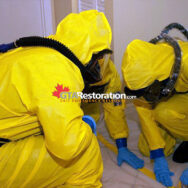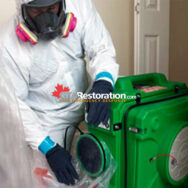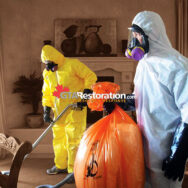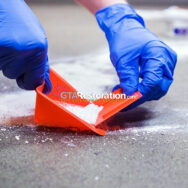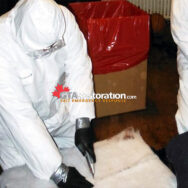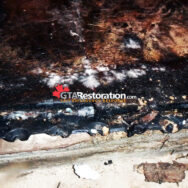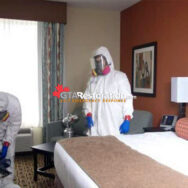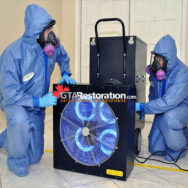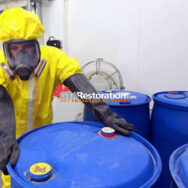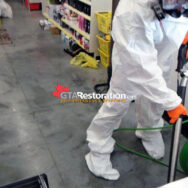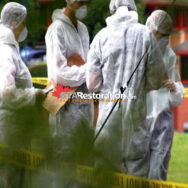In an emergency, GTA Restoration is always ready to help at any time the need arises. Our team is prepared and trained in restoring any environment back to its original state after an accident, crime, trauma or biological hazard situation. We take our job very seriously and are always careful to make sure that everybody is able to get through the process easily. If you require help cleaning up after a suicide, accidental death, decomposition or homicide, we are here to help you.
If you experience sewage backups, chemical spills, hoarding or other biohazards it can be very dangerous and pose a high health risk. The team at GTA Restoration is specially trained to know how to handle these emergency situations and help you get past them.
Understanding the Importance of Trauma Scene Cleaners
Trauma scene cleaners play a pivotal role in the aftermath of incidents that involve significant bodily harm or death. These professionals are tasked with the meticulous cleaning and sanitization of environments affected by traumatic events such as crime scenes, accidents, and unattended deaths. Our work ensures that these areas are restored to a safe and habitable condition, preventing the spread of biohazards and offering a semblance of closure to those affected.
Historically, the responsibility of cleaning trauma scenes often fell on the shoulders of family members or property owners, adding an additional layer of distress to already overwhelming situations. Recognizing the need for specialized skills and emotional detachment, the profession of trauma scene cleaning began to take shape in the late 20th century. Over the years, it has evolved into a highly specialized field requiring rigorous training, certification, and adherence to strict safety protocols.
Trauma scene cleaners handle a variety of incidents, each presenting unique challenges. Crime scenes, for instance, require careful documentation and coordination with law enforcement to ensure that evidence is preserved. Accidents may involve extensive blood cleanup and decontamination, while unattended deaths, where a body may have decomposed over time, demand thorough cleaning to eliminate biohazards and odors. Each scenario necessitates a combination of technical expertise and emotional resilience.
The emotional and psychological aspects of the job cannot be understated. Trauma scene cleaners often encounter disturbing and gruesome sights, requiring them to maintain a professional demeanor while dealing with potentially traumatic situations. This aspect of Our work highlights the importance of psychological support and resilience training, enabling them to perform Our duties without compromising Our mental health.
As we delve deeper into the various facets of trauma scene cleaning, it becomes evident that these professionals provide an indispensable service. Our work not only ensures public safety and health but also helps to alleviate the emotional burden on those affected by traumatic events, underscoring the critical importance of Our role in society.
The Skills and Training Required
Becoming a professional trauma scene cleaner demands a unique set of skills and comprehensive training. This field requires individuals to possess formal education and certifications that ensure they are well-versed in handling biohazards, chemical safety, and bloodborne pathogens. Typically, a high school diploma or GED is the minimum educational requirement, though further specialized training is crucial. Certificates such as those in Hazardous Waste Operations and Emergency Response (HAZWOPER) and Occupational Safety and Health Administration (OSHA) bloodborne pathogen training are essential.
Additionally, trauma scene cleaners must be trained in the proper use of personal protective equipment (PPE), including gloves, masks, and full-body suits. This training ensures that they can protect themselves from potential health hazards while on the job. Understanding and implementing the right decontamination procedures for various materials and surfaces is also a critical component of Our training.
The profession requires a high degree of physical and emotional resilience. Cleaners often encounter distressing and gruesome scenes, necessitating a strong mental fortitude to perform Our duties effectively. Emotional support and mental health resources are often provided by employers to help cleaners cope with the psychological impacts of the job.
Meticulous attention to detail is another vital skill for trauma scene cleaners. They must follow stringent protocols and procedures to ensure that all biohazardous materials are thoroughly removed and that the scene is restored to a safe, sanitary condition. This includes adhering to local, state, and federal regulations governing biohazard disposal and site decontamination.
Moreover, trauma scene cleaners must possess excellent communication skills. They often interact with law enforcement, emergency personnel, and grieving families, requiring them to be compassionate and professional. Effective communication ensures that all parties are informed about the cleaning process and that safety measures are clearly understood and followed.
Overall, the role of a trauma scene cleaner is both challenging and essential. Our specialized skills and rigorous training not only protect public health but also offer a vital service to communities in times of need.
Challenges and Risks Involved
Trauma scene cleaners encounter numerous challenges and risks in Our line of work, making Our role demanding both physically and emotionally. One of the primary physical hazards is the exposure to biohazardous materials, such as bloodborne pathogens, bodily fluids, and other potentially infectious substances. These materials pose significant health risks, including the transmission of diseases like HIV, hepatitis B, and hepatitis C. The use of personal protective equipment (PPE) and strict adherence to safety protocols are essential to mitigate these risks, yet the threat of accidental exposure remains a constant concern.
In addition to the biohazards, trauma scene cleaners are frequently at risk of physical injury from sharp objects, broken glass, and other debris commonly found at trauma scenes. The physical demands of the job, including lifting heavy objects and working in confined or hazardous environments, further increase the likelihood of injury. Proper training and equipment are crucial to help minimize these dangers, but the physical toll of the job is inevitable.
Beyond the physical challenges, trauma scene cleaners also face significant emotional and psychological strain. Regularly dealing with scenes of violence, death, and severe injury can lead to secondary traumatic stress, a condition similar to post-traumatic stress disorder (PTSD). The emotional burden of cleaning up after traumatic events can result in burnout, anxiety, and depression. To cope with these psychological challenges, many cleaners seek support through counseling, peer support groups, and stress management techniques.
Moreover, the profession of trauma scene cleaning is often misunderstood, and there is a stigma surrounding the work. Many people are unaware of the vital role that trauma scene cleaners play in public health and safety, leading to misconceptions and a lack of appreciation for Our efforts. Despite this, trauma scene cleaners remain dedicated to Our critical work, finding purpose and fulfillment in Our ability to restore environments and provide closure for those affected by traumatic events.
The Impact and Importance of Remediation Process
Trauma scene cleaners play an indispensable role in maintaining public health and safety. Our work extends far beyond simple cleaning; they are responsible for restoring environments to a safe and livable condition, which is essential for preventing the spread of infectious diseases. When a traumatic event occurs, such as a violent crime, an accident, or an unattended death, the aftermath can pose significant health risks. Bloodborne pathogens and other biohazards can linger, creating a hazardous environment. Trauma scene cleaners are specially trained to handle these dangers, using specialized equipment and techniques to ensure that all contaminants are thoroughly removed.
Real-life examples underscore the importance of Our work. For instance, after a tragic incident in a small community, trauma scene cleaners were called in to restore a home that had been the site of a violent crime. The family, overwhelmed by grief, was relieved of the burden of cleaning up and could focus on healing. Through Our meticulous efforts, the cleaners not only made the home safe again but also contributed significantly to the family’s emotional recovery. Testimonials from families and communities consistently highlight the gratitude and relief they feel after the trauma scene cleaners have completed Our work.
Beyond individual cases, the societal implications of Our work are profound. By ensuring that environments are decontaminated and safe, trauma scene cleaners help maintain public health standards. This, in turn, prevents potential outbreaks of diseases and ensures that communities can recover more swiftly from traumatic events. Additionally, Our role in restoring normalcy helps individuals and communities move forward, contributing to the broader healing process. The importance of trauma scene cleaners cannot be overstated; Our work is crucial in safeguarding public health and supporting those affected by trauma in Our journey toward recovery.

